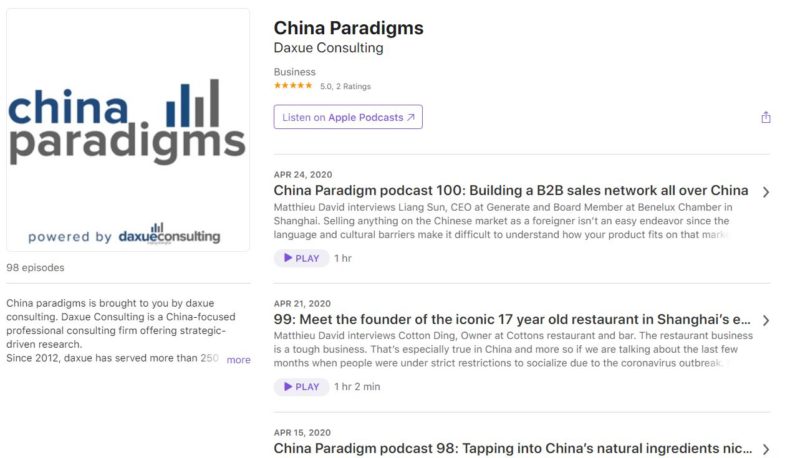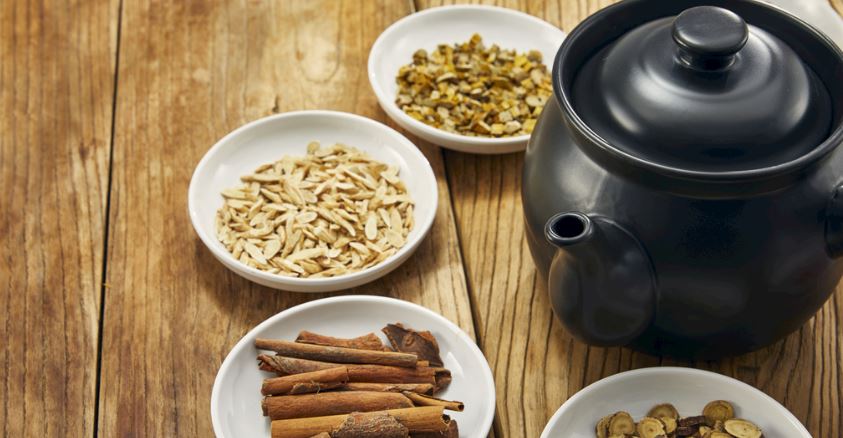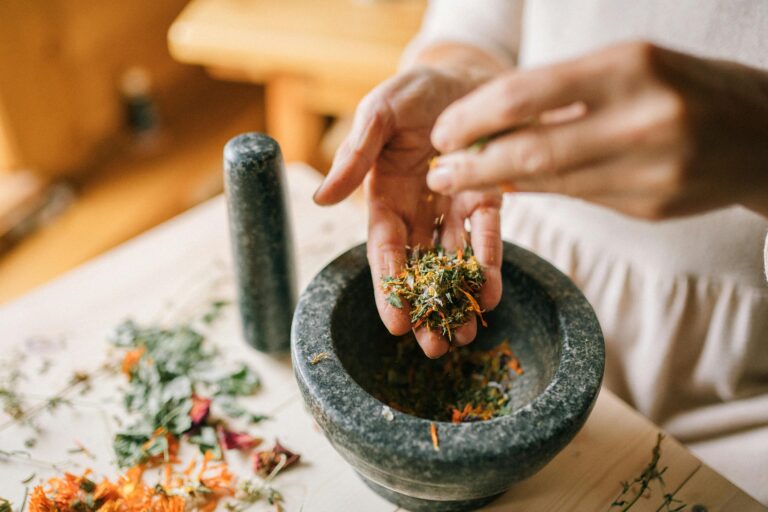Traditional Chinese Medicine takes 30-40% of China’s pharmaceutical market
The Chinese pharmaceutical market consist of biologics, generics, OTC drugs, and traditional Chinese medicine. The traditional Chinese medicine market comprises about 30-40% of drug sales in China. It also displays more rapid growth than other segments of the pharmaceutical market in China. Yangtze River Pharmaceutical Group, Shanghai Pharmaceutical Co Ltd, and Yunan Baiyao Group take up over one-third of the market share, indicating a highly consolidated market. They all provide traditional Chinese medicines. Regarding the traditional Chinese medicine market specifically, key players involve China TCM, Yunnan Baiyao, Beijing Tong Ren Tang, Guangzhou BYS, and Pien Tzhe Huang. TCM products are generally categorized into Chinese patent medicines, decoction pieces, and Chinese herbs.
The traditional Chinese medicine market in China will keep growing in the new normal
Though often controversial in modern times, Traditional Chinese Medicine’s (TCM) has played a significant role in the health care system in China since ancient times. It is predicted that TCM will continue to grow in significance in the post-COVID-19 era in China. A survey about public trust in TCM in China showed that, as of November 2019, 49% of Chinese respondents prefer traditional Chinese medicine to Western medicine treatment (51%). Recent years have also witnessed a steady growth in the volume of diagnosis and treatment of medical institutions specializing in TCM. Such a phenomenon is a result of political, economic, socio-cultural, and technological implications. An increasingly aging population, rising GDP per capita, expanding health insurance programs and urbanization, technological advancement in TCM industry, and very importantly, favorable government policies support as well as promotion of TCM in mass media jointly contribute to the TCM market growth.
Notably, the Chinese government has set TCM as a strategic priority to support the development of the medical industry. The policies issued will facilitate progress in TCM medical care, scientific research, education, and culture. It will encourage the establishment of a more sophisticated TCM service network that covers both urban and rural areas. Furthermore, the State Council called for the protection and industrialization of TCM herbs and innovation in the TCM industry.
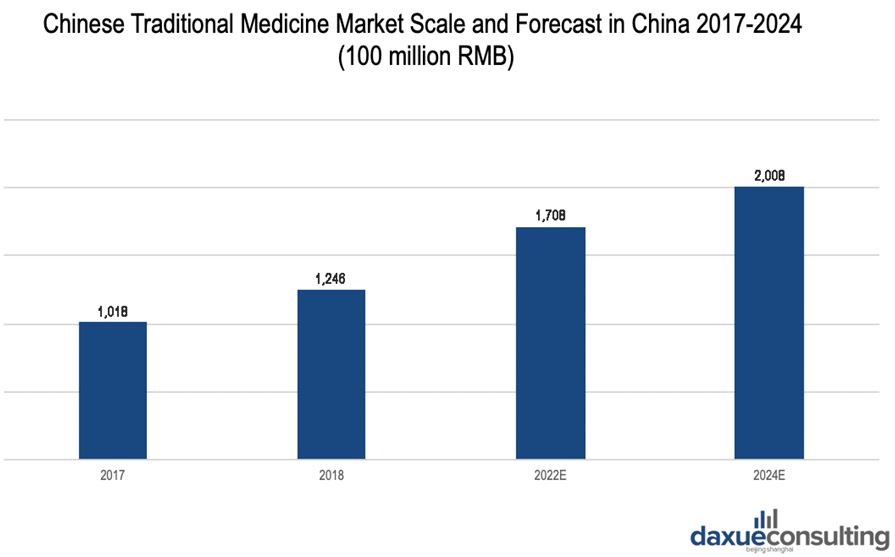
[Source: China Pharmaceutical News “The TCM market scale in from 2020-2024 is expected to be higher after the COVID-19 outbreak.”]
Chinese herbal decoction pieces and Chinese medicine formula granules are growing in popularity
Among the subcategories of TCM, Chinese herbal decoction pieces (中药饮片) and TCM formula granules (中药配方颗粒) are growing in popularity. TCM decoction pieces are mainly Chinese herbs that have been processed. It uses decoction technology such as ultra-fine pulverization to processed raw materials (e.g. herb, insect, shell, dried plants) based on Chinese medicine theories and Chinese medicine processing methods, which can be taken directly as a pharmaceutical formula or taken directly, or further processed into Chinese patent medicine products. Chinse decoction pieces can be used directly in clinical treatment. Development of modernized decoction technology has led to the strong growth. The TCM formula granule grew steadily in the past ten years and will also continue to display an upward trend in the future.
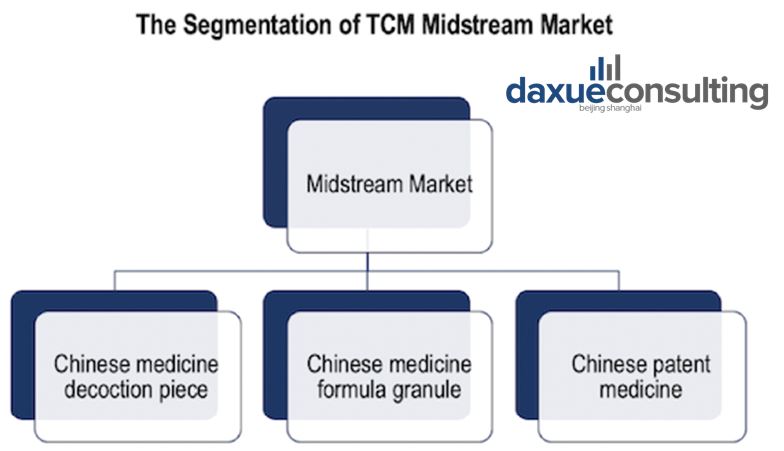
[Source: iiMedia “The midstream TCM market is the core of TCM industry, the production of which will impact the development of the upstream market.”]
Upon doctors’ prescription, the assistants do not give patients raw materials, but processed recipes, patients will have to use these powders or liquid to make a Chinese medicinal soup. With the policy dividend, the Chinese decoction pieces sector has developed steadily. The revenue growth rate bottomed out in 2018 and reached 210.49 billion yuan, an increase of 14.2% year-on-year. It shows a prospect for growth in the coming years. General hospitals and TCM hospitals are the major consumer markets for processed TCM, with revenue accounting for 48%, followed by clinics with revenue accounting for 22.5%.
The discussion of TCM efficacy polarizes into two competing positions
Before the COVID-19 outbreak, analysts had predicted the strong growth of TCM market revenue. Given that TCM was said to be used to treat over 90% of patients in China during the COVID-19, it is predictable that public trust in TCM will increase, leading to growing demand in the market. The demand here refers not only to the treatment of confirmed diseases but also to general health optimization. TCM is known for optimizing health by balancing the entire body system, hence it is a preventative medicine. Many Chinese believe TCM is effective for general health optimization and treating minor or chronic ailments. Compared to western medicine, they believe TCM does less harm to one’s body because it’s side effects are minimal. These perceptions have been rooted in the minds and hearts of the majority of individuals in China.
What TCM Skeptics say
There are also a large number of TCM. Some say the theoretical foundation of TCM was much weaker than that of western medicine which is backed by sound physiochemical studies and research data. TCM is an experience-based subject and has a high level of ambiguity and uncertainty. That is why TCM is still not fully accepted as part of the modern medical science system. The status quo of TCM is that there is a lack of evidence to prove its efficacy due to its complexity. A traditional Chinese medicine prescription may have dozens of medicines, thus it’s hard to tell which one(s) are effective, what is the effective dosage, and whether it remains effective if we single out each ingredient. Even though it has been used in clinical diagnosis and treatment for centuries, it remains an issue to explain TCM’s pharmacological mechanism.
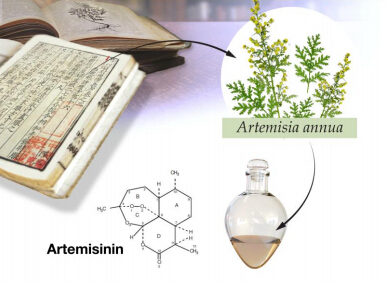
[Source: MedSci “Inspired by TCM, Tu Youyou managed to identify and extract the powerful antimalarial compound artemisinin.”]
In short, it does not come to a simple conclusion to say whether TCM is effective or not. The core of this discussion is not TCM itself, but the research framework and system. Tu Youyou’s achievement in the area of TCM is a stark example of the truth that with an evidence-based research method, TCM is proved to have high value in health care. Tu Youyou (屠呦呦) is a Chinese pharmaceutical chemist, studied traditional herbal medicines and managed to extract a substance, artemisinin (also known as 青蒿素), which inhibits the malaria parasite. She received the 2015 Nobel Prize in Physiology or Medicine for her work and brought TCM into the limelight.
The role of TCM during COVID-19 remains uncertain
Talking about COVID-19, while there is still no vaccine for COVID-19, western drugs like Remdesivir and Avigan are said to be effective. In China, during the early stage of the pandemic outbreak, there were news informing that the Chinese Academy of Sciences Shanghai Institute of Materia Medica (SIMM) along with the Wuhan Institute of Virology have had preliminary findings showing that Shuanghuanglian liquid, a traditional Chinese patent medicine, can inhibit the novel coronavirus. Suddenly people set off on a panic buying spree. Amid the buying spree were rebuttals to the rumor, saying that there was no strong evidence to prove that Shuanhuanglian can effectively inhibit the virus.
According to the National Medical Products Administration, by 15 March 2020, TCM was said to be used to treat 91.64% cases in Hubei Province, 89.10% in Wuhan. The proportion of Chinese medicine participating in treatment nationwide is 92.41%. Apparently, with the statistics released, there is a heated discussion on TCM on the Internet. Searches for Chinese medicine on Baidu have increased significantly during the COVID-19. While the mass media keeps promoting TCM, a lot of people are questioning the credibility of the statistics and the link between TCM and COVID-19 treatment based on the statistical approach as well as pathology.
![Search frequency for 'Traditional Chinese Medicine' spiked during the COVID-19 outbreak in China]](https://daxueconsulting.com/wp-content/uploads/2020/06/daxue-consulting_Baidu-index-searches-for-traditional-Chinese-medicine.png)
[Baidu Index, Search frequency for ‘Traditional Chinese Medicine’ spiked during the COVID-19 outbreak in China]
Will TCM products be accepted abroad?
Meanwhile, China has sent TCM drugs like Lianhua Qingwen abroad as part of humanitarian aids. It seems like a step forward of TCM on a global scale. However, there is still a long way for TCM to go to be accepted overseas. The key is an evidence-based modern medicine approach, determining the efficacy by comparing the existing evidence, not just the impression and the individual. It is a process from roughness to preciseness. In other words, for TCM to be accepted in the western world, using a western “ruler” in investigations is crucial, just like Tu Youyou’s case. It is going to be tough for TCM to enter the western culture using Chinese standards because it is by nature a complex and unfamiliar oriental mechanism to the western ideology.
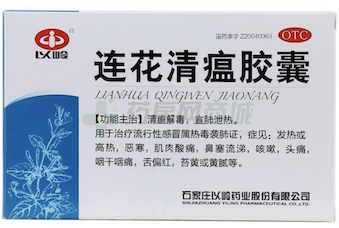
[Source: Baidu Baike “Like many TCM, the adverse drug reactions of Lianhua Qingwen remains unclear.” ]
The public opinions call for a scientific approach in TCM investigation
Zhong Nanshan, an advisor in managing the COVID-19 pandemic, once written in his autobiography that traditional Chinese medicine, as an accumulation of empirical medicine, must follow the path of evidence-based medicine, truly convince people of its efficacy in the clinic, and then further explore the mechanism. To tackle the bottleneck of empirical medicine in traditional Chinese medicine, practitioners must transform effective individual patient cases of traditional Chinese medicine into generic and effective solutions to the disease groups through modern evidence-based medicine research models.
Therefore, although TCM is raised to a high strategic position in domestic settings, it still has a long way to go in global settings. It is too early to say TCM is a step closer to an alternative to Western medicine, given that there are still various unresolved doubts in its cradle. To compliment or to undermine, there are complicated factors involved. Under the COVID-19 pandemic, it is hard to justify the role of TCM in a phenomenal event like this. Admittedly, it does facilitate people’s thinking about TCM, which will contribute to the development of TCM investigation in the health care system in China. Perhaps in the “new normal”, we will witness a transformational journey of TCM in China, endorsed by the government’s initiative and leading practitioners coming out of the pandemic.
Listen to 100 China entrepreneur stories on China Paradigms, the China business podcast
Listen to China Paradigm on Apple Podcast
